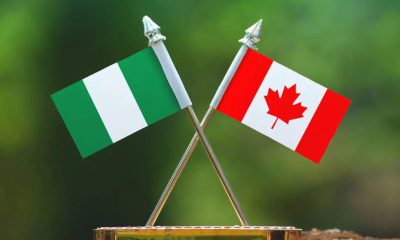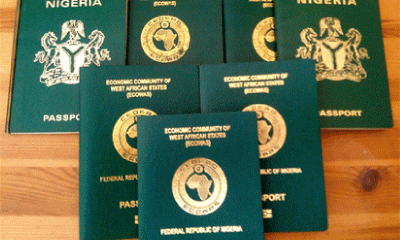News
Nigerians still struggling with poverty, unemployment, says Speaker Abbas
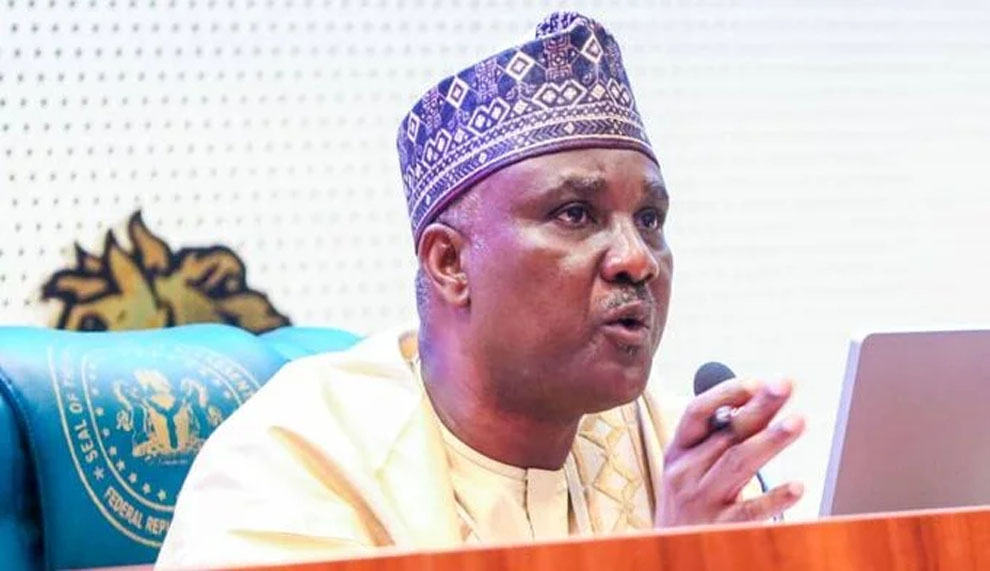
Nigerians still struggling with poverty, unemployment, says Speaker Abbas
Speaker of the House of Representatives, Hon. Abbas Tajudeen, has said that despite efforts by leaders of the executive and the legislature, Nigeria has continued to grapple with issues of poverty, unemployment, and inequality.
In an address read on his behalf by the deputy speaker, Hon. Benjamin Kalu, at the commencement of the second session of the House, the speaker informed his colleagues that those who elected them have high expectations from them.
He said: “The expectations of our constituents remain high, and they look up to us to address pressing issues such as security, economy, healthcare, education, and infrastructure. The gains of democracy must translate into tangible improvements in the lives of our citizens.”
Speaker Abbas reminded the House that “at the heart of this democratic journey has been the legislature, an institution that epitomizes the participatory character of our democracy.
“The National Assembly, comprising the Senate and the House of Representatives, has played a pivotal role in ensuring that the aspirations and interests of Nigerians are represented, laws are made for the peace and progress of the country, and the executive is held accountable.
“The 10th House, in its First Session, has continued to uphold these tenets and the legacy of previous sessions before us. Throughout our first session, each one of you has demonstrated unwavering dedication and integrity in carrying out our duties.
“We have engaged in robust debates, passed crucial legislation, conducted thorough oversight, and stood firm in representing the diverse voices of our nation. Together, we have shown what true public service looks like – selfless, principled, and committed to the common good.
READ ALSO:
- Tragedy, policemen kill three workers of Oyo food company during protest
- Expect gazette exempting SMEs, farmers, manufacturers from paying withholding tax soon – Presidency
- Troops arrest three Kaduna female hawkers accused of being bandits’ informants
“We have passed numerous laws that have shaped our economic landscape, reformed key sectors, and strengthened our democratic institutions.
“The House introduced 1,351 bills, the highest number in any first session since 1999. Out of this impressive number, 89 bills were passed, reflecting the House’s commitment to legislative efficiency and effectiveness.
“Key bills include the Access to Higher Education Act, 2024, popularly known as the Students Loan Bill, and the Electricity Act (Amendment) Bill, 2023, which aims to enhance the efficiency and sustainability of Nigeria’s electricity sector by promoting investment in renewable energy sources. Furthermore, the Federal Audit Service Act (Amendment) Bill, 2023, strengthens financial oversight and transparency, ensuring better management of public funds and reducing corruption.
“Additionally, 679 motions were introduced, setting a record for the number of motions in the first session. One of the core functions of the legislature is oversight. Through public hearings, investigative committees, and rigorous debates, we have held the executive accountable, ensuring that public funds are used judiciously and that government policies are aligned with the needs of the people.
“Our oversight activities have led to significant outcomes, including recovering misappropriated funds and rectifying administrative inefficiencies.
“We have rigorously engaged citizens in our various activities out of the firm understanding that we are here at the people’s instance. We have considered a good number of public petitions, prioritized constituency engagements, and held productive citizens’ town halls on budget considerations, electoral reforms, and the articulation of legislative agendas.
“We couldn’t have done otherwise given our appellation as the People’s House. As we begin this second session, we must acknowledge that there are challenges ahead. Despite our efforts, Nigeria continues to grapple with issues of poverty, unemployment, and inequality.
“The expectations of our constituents remain high, and they look up to us to address pressing issues such as security, economy, healthcare, education, and infrastructure. The gains of democracy must translate into tangible improvements in the lives of our citizens.
“As legislators, we are aware that our work is far from complete. We must continue to enact laws that promote economic growth, social justice, and environmental sustainability. In this regard, we must strengthen our institutions and enhance our legislative processes.
“We must invest in capacity building for legislators and staff, improve our data collection and analysis capabilities, and foster greater collaboration with civil society and the private sector. Transparency, accountability, and public participation must remain the cornerstones of our legislative agenda.
READ ALSO:
- Rivers crisis: Group sacks members supporting ex-governor Wike
- BREAKING: Imo Assembly suspends four members over impeachment plot
- BREAKING: Imo Assembly suspends four members over impeachment plot
“As I noted in my July 4, 2023 speech, this House has been called upon to serve at one of the most challenging times in our nation’s history. However, it is a privilege to serve as a member of this esteemed House at such a critical juncture in Nigeria’s history.
“Our nation faces numerous challenges. Yet, it is precisely during times like these that strong leadership and decisive actions are needed most. We have been entrusted with the responsibility to steer our country towards a brighter future, and I have full confidence in our collective ability to rise to the occasion.
“Let me at this juncture renew my pledge as your Speaker to remain fair and open to all, irrespective of our political views and affiliations. I serve you as a servant-leader, committed to upholding the principles of democracy and ensuring that every voice is heard in this hallowed chamber.
“I humbly acknowledge that my role as Speaker places me as the first among equals in this august assembly. I do not see myself as a boss but rather as a facilitator of dialogue, a preserver of order, and a champion of democratic ideals.
“We are all colleagues here, united by our shared commitment to serving the people who have entrusted us with their hopes and aspirations. Each one of us brings unique perspectives and experiences to this House, and it is through collaboration and mutual respect that we can truly serve the interests of our nation.
“I pledge to uphold the values of inclusivity, transparency, accountability, and respect for all in all our deliberations and actions.
Together, let us demonstrate to our constituents that their trust in us is not misplaced and that we are worthy stewards of their hopes and aspirations.
He announced a plan by the House to hold the first-ever House open week to mark the end of its first session and the commencement of its second session.
He said: “The event will kick off with the presentation of the House’s scorecard detailing our achievements and challenges over the past year. We will also have the honour of hosting prominent Nigerians and former presiding officers who will share their perspectives on our performance during this period. This reflective session will provide valuable insights into our strengths and areas for improvement.
“Various engagements have been planned over three days to discuss the strategic legislative priorities outlined in our Legislative Agenda. These sessions are designed to facilitate discussions, debates, and reflections on our deliberations, celebrate our achievements, and reaffirm our commitment to serving with integrity and diligence.
“It is my hope that this event will not only strengthen our bonds as colleagues but also reinforce our dedication to fulfilling our legislative duties with excellence.”
“Your engagement, input, and commitment are crucial in ensuring that we collectively chart a course that aligns with the interests of those we represent. Let us seize this opportunity to engage meaningfully with our people, exchange ideas, and work towards common goals for the betterment of our nation.”
Nigerians still struggling with poverty, unemployment, says Speaker Abbas
News
World Bank approves Tinubu’s $632m loan request

World Bank approves Tinubu’s $632m loan request
The World Bank is poised to approve $632 million in new loans to Nigeria today (Monday), amid growing concerns over the country’s expanding debt profile.
The loans are intended to support important sectors such as nutrition enhancement and quality basic education.
According to data obtained from the World Bank’s website on Sunday, the two loans scheduled to be approved today are $80 million for the Accelerating Nutrition Results in Nigeria 2.0 initiative and $552 million for the HOPE for Quality Basic Education for All programme.
Both projects are now in the negotiating phase and are likely to gain final clearance later today.
These new loans are part of the World Bank’s overall strategy to support Nigeria’s development agenda, which focuses on healthcare, education, and community resilience.
The loans will support the government’s efforts to improve nutrition and education for Nigerian children.
Additionally, the World Bank approved a $500 million loan for Nigeria’s Community Action for Resilience and Economic Stimulus Programme on March 28, 2025, a significant step towards addressing the country’s economic challenges through expanded access.
The initiative, formally known as the NIGERIA: Community Action (for) Resilience and Economic Stimulus Programme, is intended to give critical support to households impacted by economic downturns while also strengthening community resilience.
The initiative focuses on vulnerable populations, providing assistance to households and small companies to help them cope with economic difficulties.
READ ALSO:
- Okada rider allegedly stabbed to death by wife over money
- Police rescue two persons abducted in Lagos
- Miyetti Allah accuses Benue community of poisoning 20 cows
The loan clearance is likely to considerably boost Nigeria’s efforts to revive the economy through grassroots backing, especially given current issues such as inflation and high living costs.
The stimulus plan will prioritise enhancing food security and developing economic possibilities for the populations most affected by recent economic changes.
This decision came after a delay in distributing funds for a previous loan aimed at poor and vulnerable Nigerians.
Further investigation by The PUNCH revealed that the World Bank disbursed around $315 million to Nigeria from the $800 million allocated for the National Social Safety-net Program Scale Up.
Nigeria is yet to receive further funding from the World Bank for this loan project, which was approved in December 2021. The delay in grant release is most likely due to fraud detected under the initiative.
In honour of the 2023 International Day for the Eradication of Poverty, President Bola Tinubu unveiled a social safety net programme that will distribute N25,000 to 15 million households over the course of three months.
The Federal Ministry of Humanitarian Affairs and Poverty Alleviation was responsible for managing the $800 million World Bank loan initiative.
However, due to allegations of embezzlement, the federal government was forced to stop the cash transfer program for further investigation and reform.
Betta Edu, a former humanitarian minister, was previously suspended for misappropriating N585 million set aside for palliative care distribution.
READ ALSO:
- Wike’s aide slams Atiku, says it’s too late to buy integrity
- Reps Committee recovers N21.4bn from four oil companies
- West African juntas impose levy on imported goods ECOWAS nations
Furthermore, Sadiya Umar-Farouq, Edu’s predecessor, was under investigation by the EFCC. The former minister is being investigated for allegedly laundering N37.1 billion during her stint as minister.
The World Bank also imposed sanctions on people and businesses discovered to be engaging in fraud under the initiatives.
According to the World Bank’s official website, this will bring Nigeria’s total approved loans to $9.25 billion over three years, indicating a growing reliance on multilateral funding to support critical sectors of the economy such as infrastructure, healthcare, education, and financial resilience.
A review of Nigeria’s World Bank loan approvals since 2023, under President Bola Tinubu’s government, reveals a huge rise in funding commitments.
In 2023, the World Bank approved $2.7 billion in loans for renewable energy, women’s empowerment, education, and the power sector. In 2024, funding approvals totalled $4.32 billion for various projects.
This increase was largely due to Nigeria’s growing need for financial assistance to stabilise the economy amid fiscal pressures and rising public debt.
Under President Bola Tinubu’s administration, the World Bank granted around 11 different credit projects for Nigeria.
In less than two years, the federal government has acquired loans from the World Bank totalling $7.45 billion, raising concerns about the mounting debt burden. According to data from the Debt Management Office, the World Bank’s portion of Nigeria’s external debt is $17.32 billion as of the third quarter of 2024.
The International Development Association is owing the majority of this debt, which amounts to $16.84 billion, or 39.14 per cent of Nigeria’s total external debt.
The International Bank for Reconstruction and Development, another World Bank subsidiary, is owing $485.08 million, or 1.13 per cent.
While the planned World Bank loans may give much-needed budgetary relief, concerns persist about the country’s mounting debt burden.
According to recent data from the Central Bank of Nigeria, the country has spent $5.47 billion servicing external debt in the last 14 months, underscoring the strain on its foreign reserves.
World Bank approves Tinubu’s $632m loan request
News
Investigation of wanted businesswoman Achimugu not linked with Atiku, Sanwo-Olu – EFCC
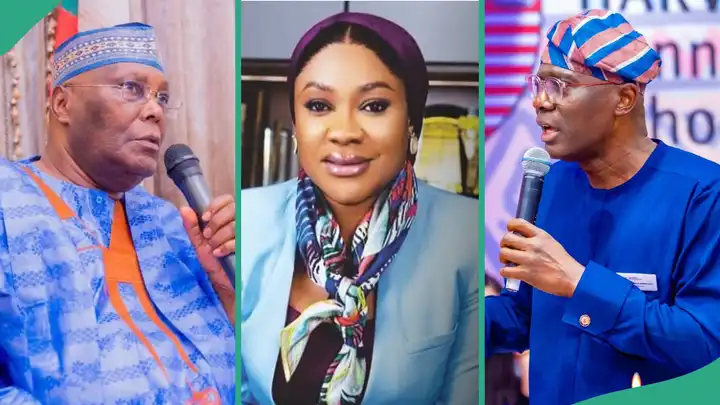
Investigation of wanted businesswoman Achimugu not linked with Atiku, Sanwo-Olu – EFCC
The Economic and Financial Crimes Commission has reacted to media reports linking its investigations of Ms. Aisha Achimugu with political undercurrents involving former Vice President Atiku Abubakar and Lagos State Governor, Babajide Sanwo-Olu
This is contained in a statement by the commission on Friday night.
The statement read, “We wish to state unequivocally that the investigations of Achimugu have no correlation of any kind with the two political actors. She is being investigated for alleged criminal conspiracy and money laundering and has since been declared Wanted by the Commission”.
The EFCC started investigating Achimugu in 2022. Although she approached the court to obtain an injunction restraining the Commission from arresting, investigating, inviting or detaining her for any alleged criminal act, the injunction was challenged and vacated on Wednesday, February 19, 2025 by a Federal High Court sitting in Abuja.
The court ruled that “…no court has the power to stop the investigative powers of the Police or EFCC or any agency established under our laws to investigate crimes when there is reasonable suspicion of commission of a crime or ample evidence of commission of an offence by a suspect.”
“The court further upheld the interim order of forfeiture of assets of Achimugu suspected to be proceeds of crime, dismissing her suit against it as lacking merit .
“The foregoing clearly establishes that the EFCC’s case against her has no immediate or remote nexus with any politician or any veiled or open reference to any political engagement or transaction.
“The EFCC is non-partisan and non-sectarian. We enjoin the public to continue to keep faith with the professionalism of the Commission without imputing any extraneous consideration to its works.”
News
Why governors’ forum is silent on Rivers emergency, by DG
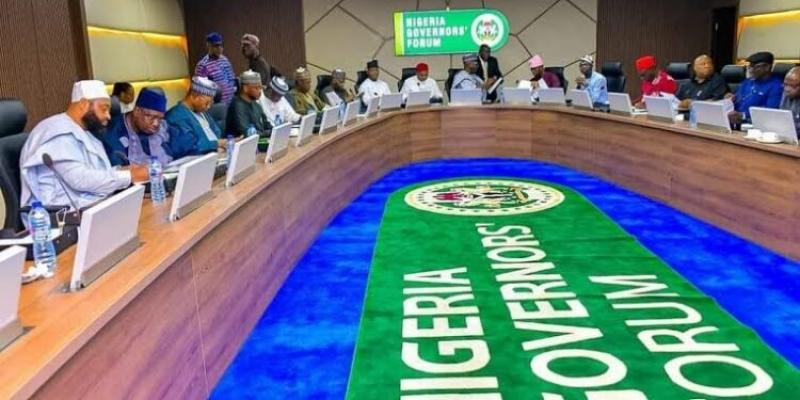
Why governors’ forum is silent on Rivers emergency, by DG
The Nigeria Governors’ Forum (NGF) yesterday attributed its neutral position on the recent declaration of a state of emergency in Rivers State to the need to steer clear of taking positions that may alienate members with varying political interests.
Taking positions on contentious partisan issues, the NGF said, would not augur well for it, especially in view of its past experience in fundamental division.
Notwithstanding, the declaration of the state of emergency by President Bola Tinubu yesterday generated more kudos and knocks from across the country.
Special Adviser to the President on Senate Matters, Senator Basheer Lado, said the action of the president was meant to ensure protection of lives and restoration of law and order in the state, while the President’s Special Adviser on Media and Public Communications, Sunday Dare, said his principal was required to “avert needless harm and destruction .”
National Publicity Secretary of the ruling All Progressives Congress (APC), Felix Morka, said Tinubu, by his action, cleared what had manifested as a constitutional crisis in Rivers state.
But former President Goodluck Jonathan saw it from a different perspective.
READ ALSO:
- Senate didn’t get 2\3 majority for Tinubu emergency rule in Rivers –Tambuwal
- FG destroys another 200 containers of expired drugs
- Rivers court bars woman from answering ex-husband’s name
He described “abuse of office and power by the three arms of government in the country“ as a dent on Nigeria’s image.
The NGF, in a statement by its Director General Abdulateef Shittu, said it is essentially “an umbrella body for sub-national governments to promote unified policy positions and collaborate with relevant stakeholders in pursuit of sustainable socio-economic growth and the well-being of the people.”
It added: “As a technical and policy hub comprising governors elected on different platforms, the body elects to steer clear of taking positions that may alienate members with varying political interests.
“In whatever language it is written, taking positions on contentious partisan issues would mean a poor sense of history — just a few years after the forum survived a fundamental division following political differences among its members.
“Regardless, the Forum is reputed for its bold positions on governance and general policy matters of profound consequences, such as wages, taxes, education and universal healthcare, among others.”
It asked for “the understanding of the public and the media, confident that appropriate platforms and crisis management mechanisms would take care of any such issues.”
Why governors’ forum is silent on Rivers emergency, by DG
-

 Uncategorized3 days ago
Uncategorized3 days agoBreaking: Moon sighted in Saudi, UAE, others, Eid-Fitr holds Sunday
-

 metro2 days ago
metro2 days agoRamadan ends in Nigeria, Sultan announces March 30 as Eid-el-Fitr
-
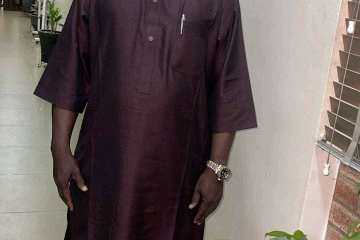
 metro3 days ago
metro3 days agoEmbrace environmental sanitation during Eid-Fitr, LAGESC boss tells Lagosians
-
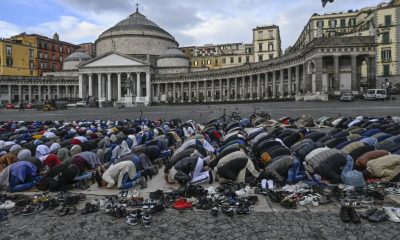
 International1 day ago
International1 day agoIn pictures: Eid celebrations around the world
-
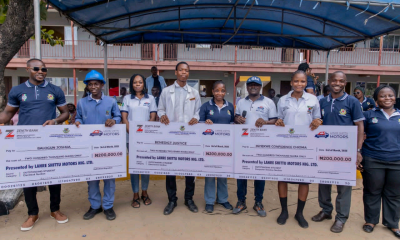
 Auto3 days ago
Auto3 days agoLanre Shittu Motors to endow Automobile Department of Lagos Technical College
-
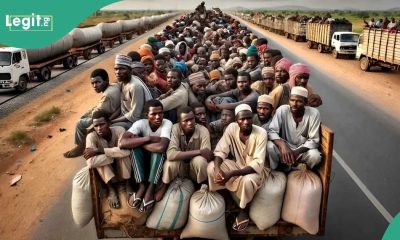
 metro16 hours ago
metro16 hours agoHow they murdered my Kano-bound passengers in Edo
-
Business2 days ago
Dangote Refinery: MRS, other filling stations increase petrol price
-

 Sports1 day ago
Sports1 day agoNigerian boxer collapses, dies in ring during fight in Ghana





